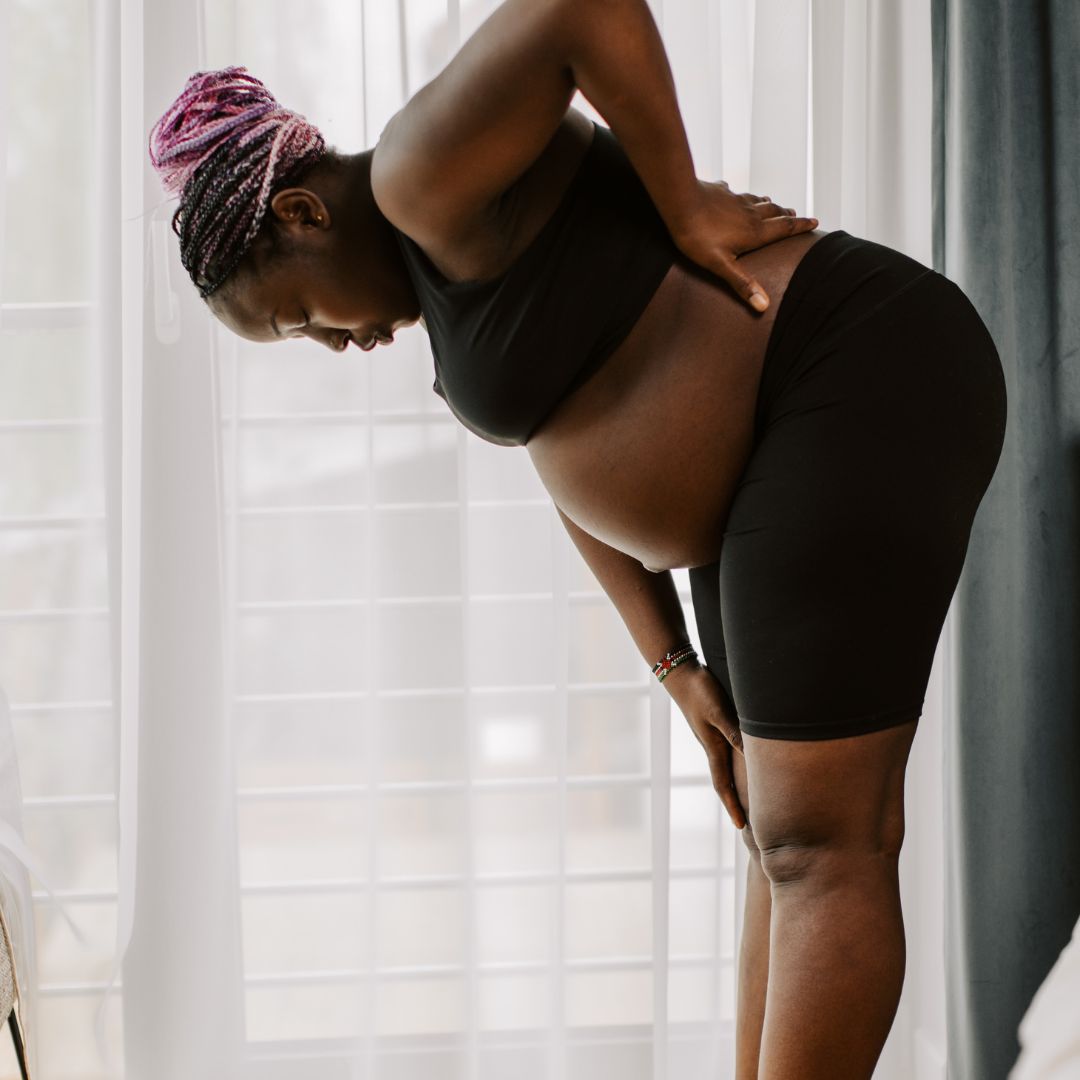For a lot of women, pregnancy is a joyous time as they watch their bodies transform to nurture their baby. And while it’s a remarkable transition to experience, it doesn’t always occur pain-free. During pregnancy, women undergo many symptoms, including lower back pain.
Types Of Back Pain During Pregnancy
So, what causes back pain during pregnancy? Several different factors can increase back pain during a woman’s pregnancy, some of those may include:
Weight Gain: As the baby grows, so does the weight that the mother carries which puts extra pressure and strain on the back. Between the baby’s weight, placenta, extra blood flow and fat storage, women can put on anywhere from 10-50 lbs. depending on their size pre-baby.
Hormonal Changes: A woman may only be a few weeks pregnant and have lower back pain early in pregnancy. All of this is due to hormone changes. The hormone relaxin and progesterone relax ligaments and joints making it a lot easier to strain muscles, including the back.
Posture Changes: The further along in the pregnancy, the more likely your posture will change. Pregnancy can shift your center of gravity which can put pressure and strain on back muscles.
Abdominal Separation: As pregnancy progresses, so does the expansion of the belly. Lower back pain in the third trimester is common. During that time, abdominal muscles may separate which can impact core stability and contribute to back pain.
Managing Pregnancy Induced Back Pain
Regardless of the cause, growing a baby can put strain on muscles throughout the body. It’s important to take care of yourself during this transformation and to find lower back relief in your pregnancy.
Management strategies may include massage therapy, maintaining good posture, exercising and stretching, wearing supportive footwear or a supportive maternity belt, sleep on your side and being mindful about the amount of weight that you lift. As always, it’s important to consult with your doctor if the pain feels severe.

Understanding the Different Types of Pregnancy-Induced Back Pain
By Dr. Peter Klapper Ph.D.

